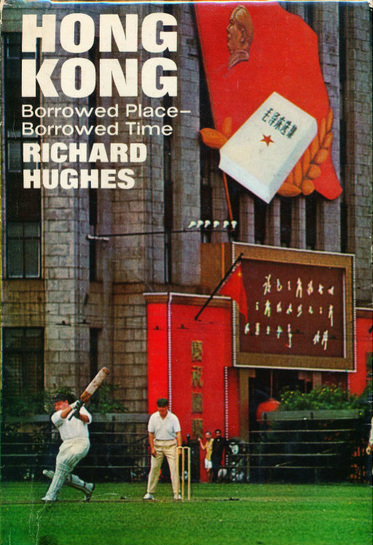(Sunday Book Club)

My Input:
In a 1959 Life magazine article titled 'Hong Kong's Ten-year Miracle,' Han Suyin (1) wrote:
"Squeezed between giant antagonists crunching bones of contention, Hong Kong has achieved within its own narrow territories a co-existence which is baffling, infuriating, incomprehensible, and works splendidly --- on borrowed time in a borrowed place."
In the rearview mirror, Hong Kong epitomized the juxtaposition of capitalist fervor against China's communist backdrop. It's a unique blend of British influence and Chinese tradition, where millionaires' estates neighbored struggling slums. and bustling streets reflected laissez-faire under non-democratic colonial rule in the realm of British law. Free speech, free press, and even free association went on as facts of life on this side of the "bamboo curtain."
Meanwhile, Hongkongers were legally recognized only as "residents" who, nevertheless, enjoyed arguably more freedom than, say, Singaporean citizens.
During the Korean War (1950-53), Hong Kong served as the sole operational port for blockaded China, with tacit approval from the colonial government which otherwise aligned with the U.S.-led West.
Located practically next door to the Hong Kong governor's residence, the American Consulate consistently supported the British like a good neighbor, especially during the city-wide riots instigated by the Nationalists in 1956 and the Communists in 1967.
Following 1967, Hong Kong experienced rapid growth and emerged as a dynamic "little dragon" in Asia. Needless to say, the United States welcomed everything made in Hong Kong---"The World of Suzie Wong." A much younger Donald J. Trump couldn't wait to make a splash in the Pearl of the Orient's Victoria Harbor.
After 1997, Hongkongers hoped for the best. Were they also prepared for the worst? If they were, they kept their plans to themselves. The majority had to stay put anyway.
Today, "Hong Kong is over," according to a former big fan of China, who has aired his gloomy opinion in the Financial Times, followed by the passing of Article 23 as the final nail in the coffin for silencing opposition voices.
In 1927, a prominent Chinese intellectual captivated his audience in Hong Kong with a public speech titled 'A Voiceless China.' (2) Silence was not golden then, as it is not now.
Author: renqiulan
(1) Han Suyin (韩素音) was the pen name of the late Risalie Matilda Kuanghu Chou (周光瑚), a Chinese-born Eurasian physician and author.
(2) 鲁迅《无声的中国》
|
